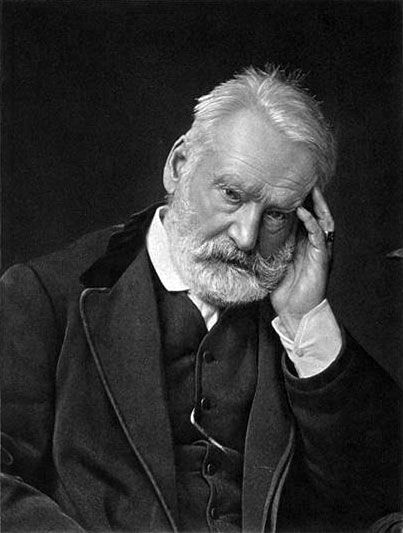Victor Hugo is a French man of letters. Poet, playwright and novelist, he is considered one of the most important writers in the French language. He founded newspapers and magazines. In his spare time, Victor Hugo produced many photographs and drawings, some of which feature in his works.
He was also an important politician in France. He was mayor of the 8th arrondissement of Paris, a member of parliament during the Second Republic and elected to the Legislative Assembly. He championed many social causes, including the abolition of the death penalty, access to education, social justice, peace, freedom for oppressed peoples, freedom of the press, democracy, the elimination of poverty, and more. He campaigned for the return of the banished, including Napoleon Bonaparte. His literature is greatly influenced by his political views.
Many of his works have been adapted for film or stage. For example, the musical Les Misérables, created in London in 1980, is still running today. It has been performed in 40 different countries and seen by over 55 million spectators. In 1999, Luc Plamondon and Richard Cocciante adapted the novel Notre-Dame de Paris into a musical.
He is one of the few literary figures to have had a state funeral.

-
1802: Victor Hugo is born on February 26 in Besançon, France.
-
1818: Aged just 16, he writes Bug-Jargal, his second novel, in 15 days.
-
1822: He publishes the poetry collection Odes et poésies diverses.
-
1827: He publishes the play Cromwell, whose preface serves as a manifesto for Romanticism.
-
1829 : He publishes his novel Le Dernier Jour d'un condamné (The Last Day of a Condemned Man), a political indictment for the abolition of the death penalty.
-
1831: Publishes the novel Notre-Dame de Paris and the poetry collection Les Feuilles d'automne.
-
1833: He publishes the plays Lucrezia Borgia and Marie Tudor.
-
1835: He publishes the poetry collection Les Chants du crépuscule.
-
1837: He publishes the poetry collection Les Voix intérieures.
-
1841: Victor Hugo is elected immortal to the Académie française.
-
1843: His daughter Léopoldine and his son-in-law drown in the Seine. Victor Hugo, greatly affected, does not publish another work until 1852.
-
1852: Because of his political stance, he is condemned to exile.
-
1856: He publishes the poetry collection The Contemplations.
-
1862: Les Misérables, a best-selling novel worldwide, is published.
-
1870: He returns to France after the fall of the Second Empire.
-
1874: He publishes his last novel, Ninety-Three
-
1885: Victor Hugo dies in Paris on May 22. He is honored with a state funeral.
-
1885: His remains are interred in the Paris Pantheon on May 31.